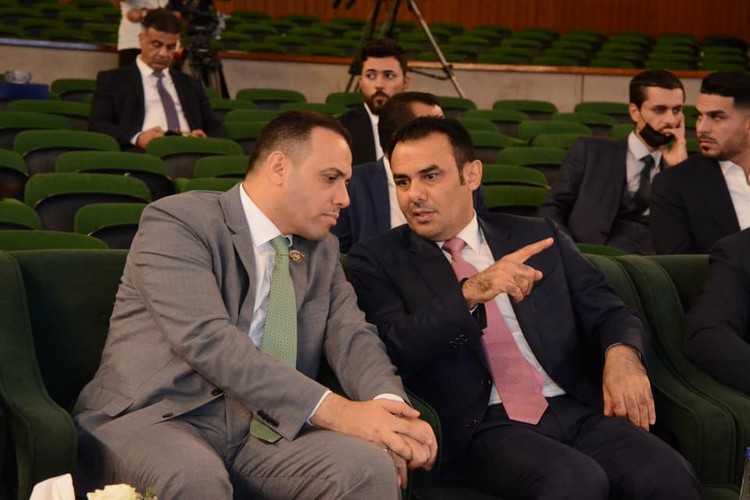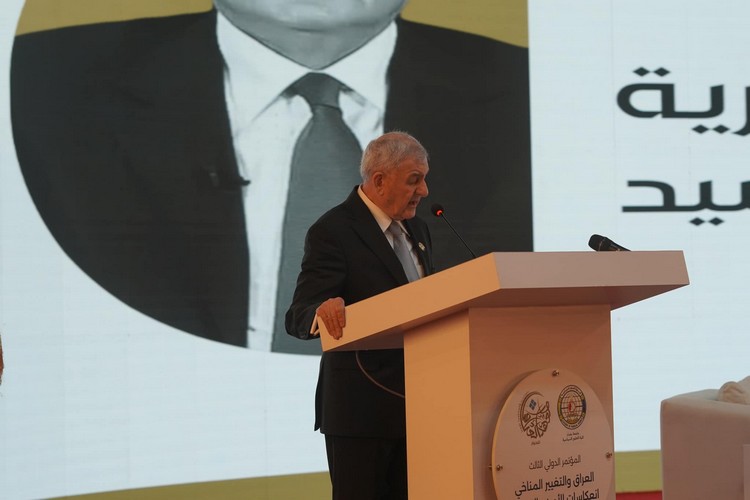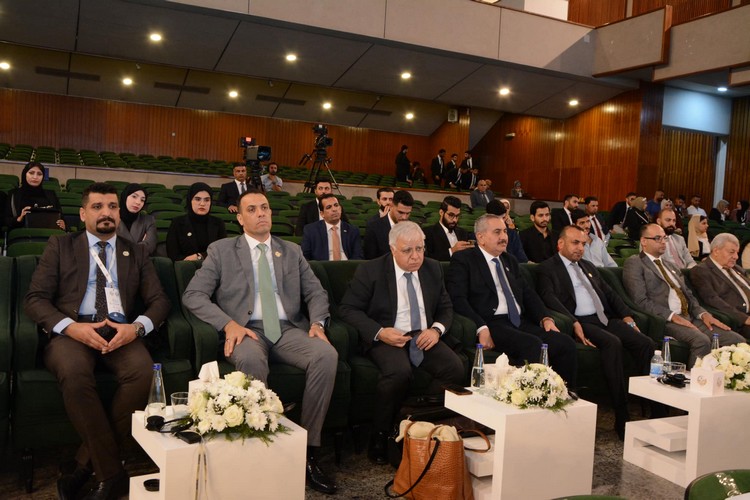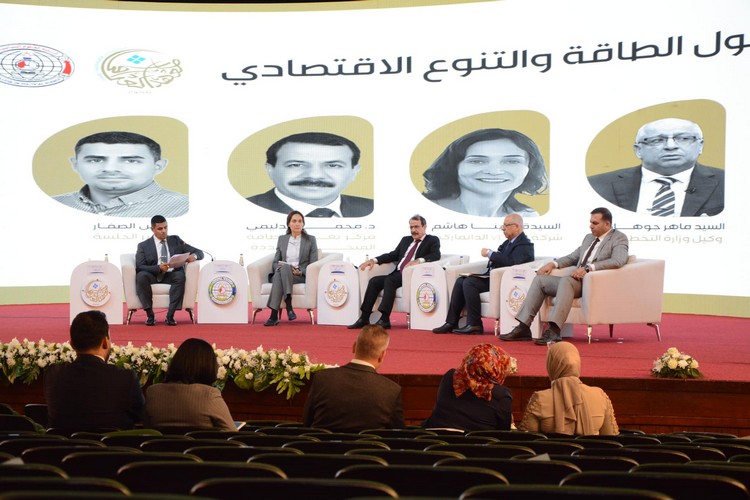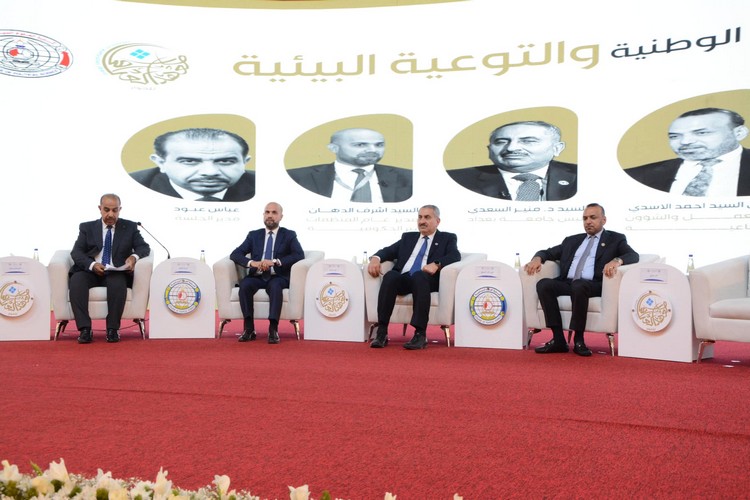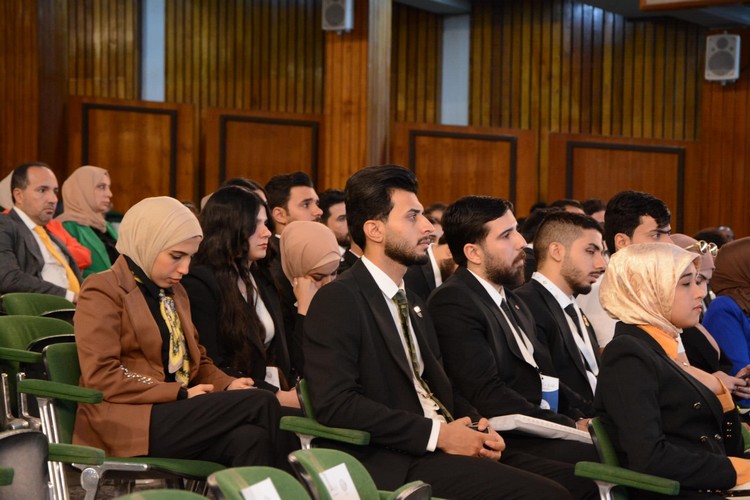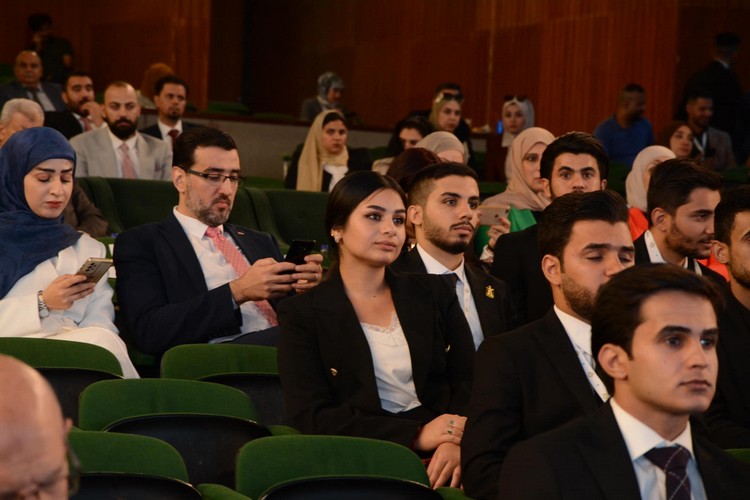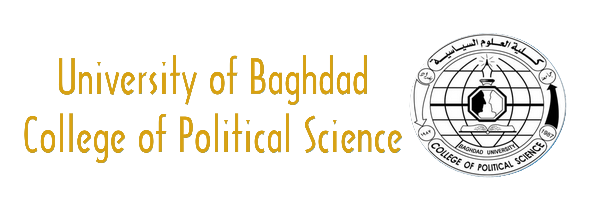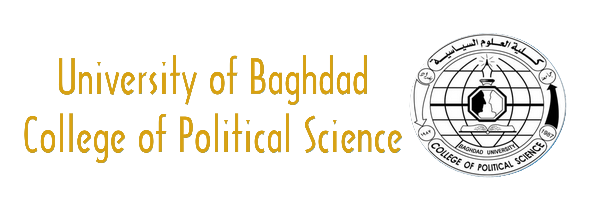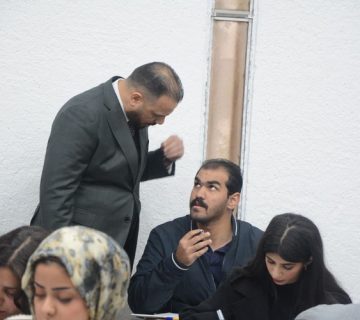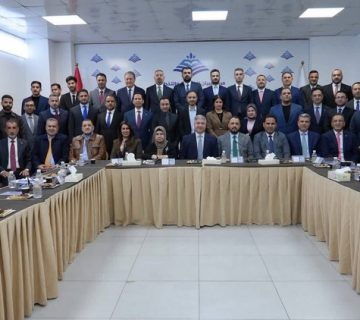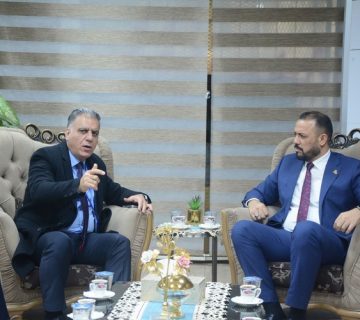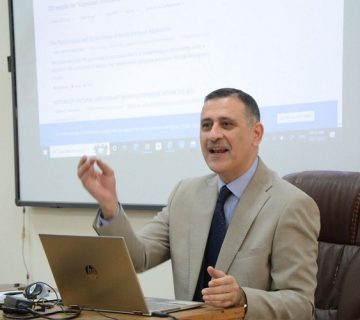The College of Political Science at the University of Baghdad, in collaboration with Al-Maahad Al-Iraqi lil-Hiwar, launched the activities of the Third International Conference on Climate Change under the slogan ‘Iraq and Climate Change: Security and Development Implications.’ The conferenc e was attended by His Excellency the President of the Republic, Dr. Abdul Latif Rashid, and the Minister of Higher Education and Scientific Research, Dr. Naim Al-Aboudi, as well as the Minister of Environment, Nazar Namadi, and the Minister of Migration and Displaced Persons, Ivan Faik, and the Minister of Interior, Abdul Amir Al-Shammari, and the Minister of Youth and Sports, Ahmed Al-Mubarak, and the Minister of Labor and Social Affairs, Ahmed Al-Asadi, and the President of the University of Baghdad, Prof. Muneer Hameed Al-Saadi, and the Director of Al-Maahad Al-Iraqi lil-Hiwar Dr. Abbas Al-Ameri, and the National Security Advisor, Qasim Al-Araji, and the Head of the International Organization for Migration Mission in Iraq, Georgie Giger, and the NATO Ambassador to Iraq, Robert Driesen, as well as a number of ministers, deputies, and officials in the state.
During his speech at the conference, Assistant Professor Dr. Adel Al-Badiwi, the dean of the college, pointed out that the most critical challenge facing Iraq and making it more vulnerable to climate change is its position among the top five fragile countries in dealing with climate change shocks, such as rising temperatures, sand and dust storms, drought and desertification, and the scarcity of water, which decreases annually in the two ancient rivers, the Tigris and the Euphrates. In addition, the country is facing continuous worsening of rainfall scarcity due to the policies of upstream countries. He emphasized that the problem of climate change is multi-level and highly complex, affecting all areas and It can be exploited by terrorist organizations.
Al-Badiwi emphasized that the establishment of the Third International Climate Conference is a response from educational institutions, the academic community, and think tanks to develop awareness initiatives that make climate change the focus of research and discussion. This is to curb climate deterioration, extremism, and to find necessary and sustainable solutions. Such conferences are undoubtedly motivating and shed light on the full picture of climate change, which is a global and existential problem that requires the adoption of serious scientific solutions and treatments.
